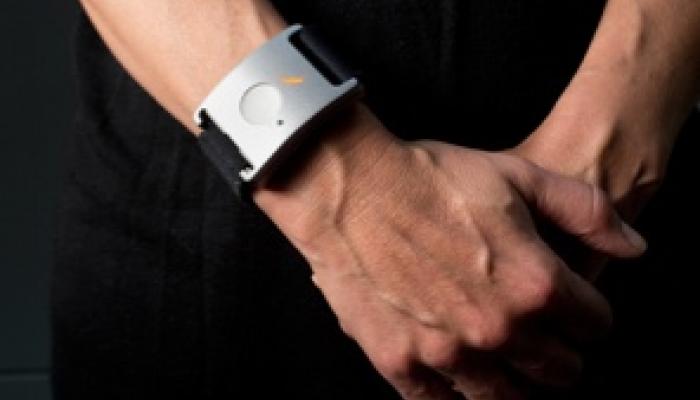An EEG Watch?

If your child has seizures then you’ve been to the neurologist for EEGs. Maybe many EEGs and maybe even those ambulatory EEGs where the leads are attached to your child’s head for days at a time.
And you and your child probably don’t like EEGs. Of course maybe you love them, but I imagine you’re not a big fan.
So you’ll probably be interested to see this new research being done on a simple watch-like sensor that is supposed to be as effective as an EEG in measuring seizure activity.
That’s right, a watch! Researchers say that the watch measures “sympathetically mediated electrodermal activity” which “has been suggested as containing enough information to profile a seizure.” They say they can even predict seizures with this watch.
The research is being done in collaboration between MIT and Children’s Hospital Boston and though they don’t indicate when it might be available for general use, it sure is exciting to see this kind of research being done.
The article doesn’t specifically say that the watch is wireless (although I don’t see any wires in the photo), but if it is, that would be amazing indeed. Wireless EEGs… what a concept!
You can read more about the watch-like sensor here.
Related Posts

Eye Conditions and Syndromes, Visual Impairment
Neuralink Announces Plans to Restore Sight to the Blind with Brain Chip
Elon Musk’s company Neuralink has announced plans to begin human trials of its new “Blindsight” brain chip by the end of 2025.

Health & Nutrition
Can Baby Skin Care Products Expire?
Is that forgotten tube of diaper rash cream still safe to use? Learn more about the expiration dates of popular skin care products for infants.

Health & Nutrition
Boosting Immunity in Kids: 3 Tips for a Healthy Winter
Parents can help boost their kids’ immunity during cold and flu season by maintaining healthy eating, sleeping, and exercising habits in the winter.